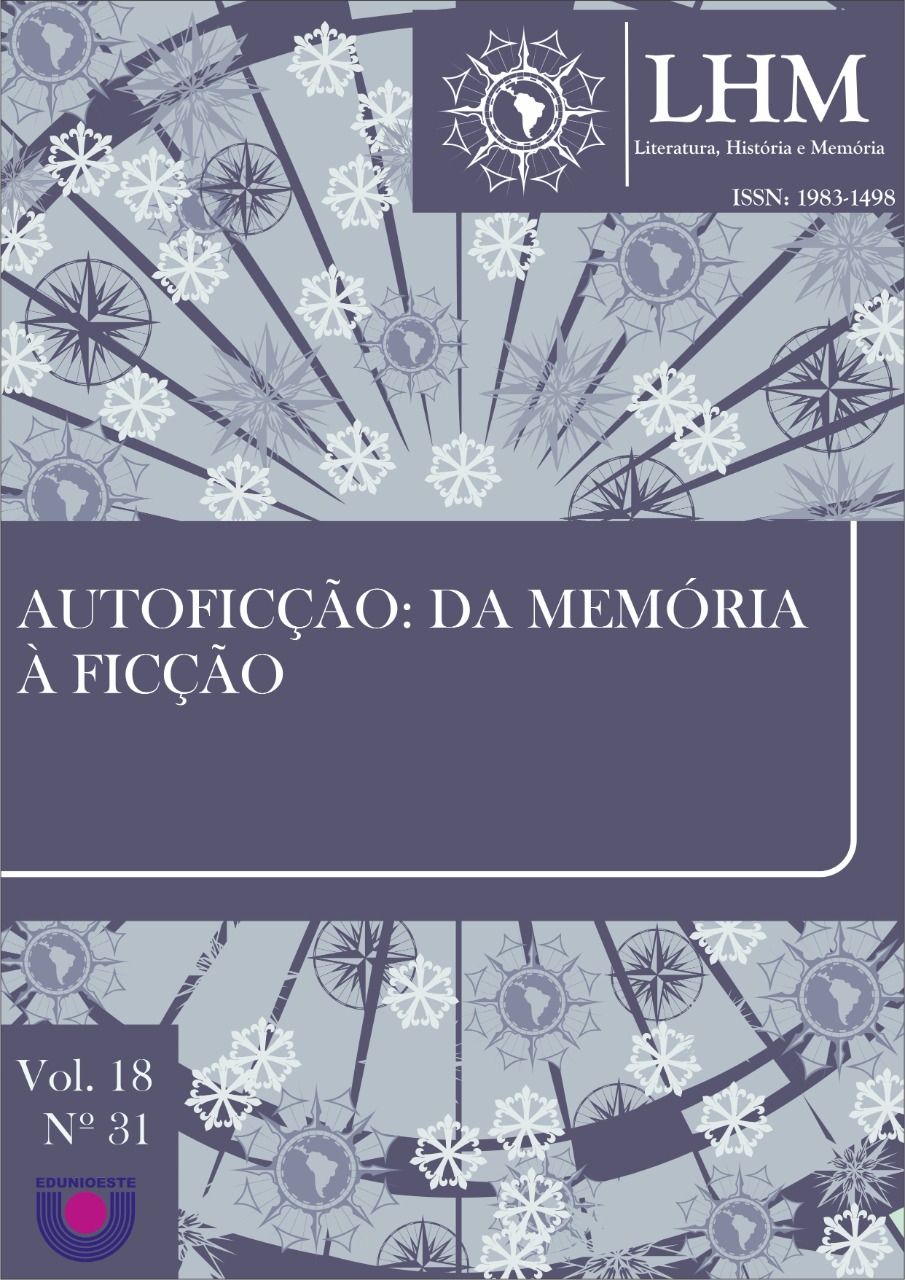The ambivalence of origin in Family Lexiconof Natalia Ginzburg
DOI:
https://doi.org/10.48075/rlhm.v18i31.28994Abstract
This work aims to examine the ambivalence of the pact that the book Family Lexicon(2018 [1963]), by Natalia Ginzburg (1916-1991), establishes with the reader. For this, it starts from the observation of the author, at the beginning of the work, when she clarifies that, in the book, everything is real and nothing is made-up, but suggests that it be read as if it were a novel. Considering the autobiographical character of the work, it seeks to investigate the position of the narrator who, despite speaking about herself, remains distant from the place of protagonism. It also intends to discuss the creation of the writing work, which can approach reality, fiction or even intertwine them. Thus, the present work explores key elements, such as memory, language, narrative, creation, imagination. In order to substantiate and give consistency to the investigation, the work of authors from Literary Theory, such as Henry James, Roland Barthes, Walter Benjamin and Catherine Gallagher, are used
Downloads
Published
How to Cite
Issue
Section
License

This work is licensed under a Creative Commons Attribution-NonCommercial-ShareAlike 4.0 International License.
Aviso de Direito Autoral Creative Commons
Política para Periódicos de Acesso Livre
Autores que publicam nesta revista concordam com os seguintes termos:
1. Autores mantém os direitos autorais e concedem à revista o direito de primeira publicação, com o trabalho simultaneamente licenciado sob a Licença Creative Commons Attribution que permite o compartilhamento do trabalho com reconhecimento da autoria e publicação inicial nesta revista.2. Autores têm autorização para assumir contratos adicionais separadamente, para distribuição não-exclusiva da versão do trabalho publicada nesta revista (ex.: publicar em repositório institucional ou como capítulo de livro), com reconhecimento de autoria e publicação inicial nesta revista.
3. Autores têm permissão e são estimulados a publicar e distribuir seu trabalho online (ex.: em repositórios institucionais ou na sua página pessoal) a qualquer ponto antes ou durante o processo editorial, já que isso pode gerar alterações produtivas, bem como aumentar o impacto e a citação do trabalho publicado (Veja O Efeito do Acesso Livre).
Licença Creative Commons
Esta obra está licenciada com uma Licença Creative Commons Atribuição-NãoComercial-CompartilhaIgual 4.0 Internacional, o que permite compartilhar, copiar, distribuir, exibir, reproduzir, a totalidade ou partes desde que não tenha objetivo comercial e sejam citados os autores e a fonte.


